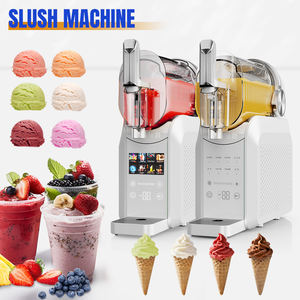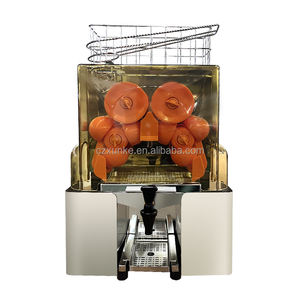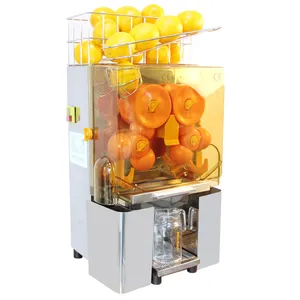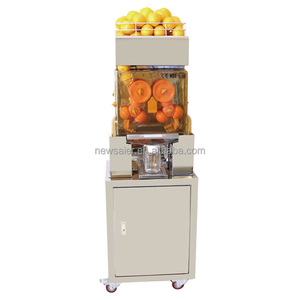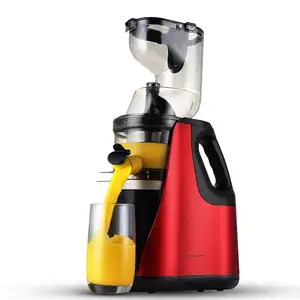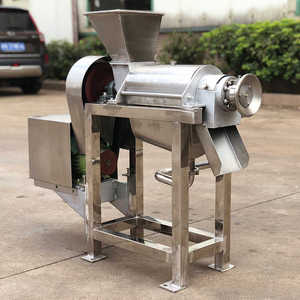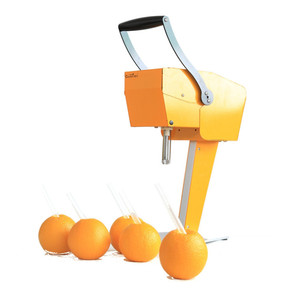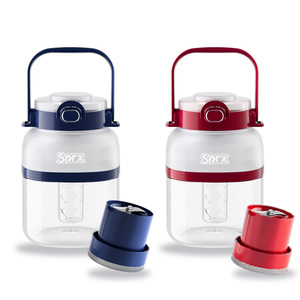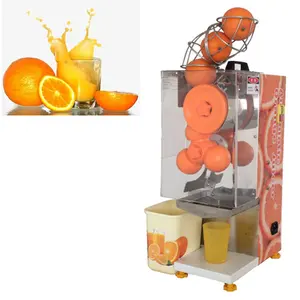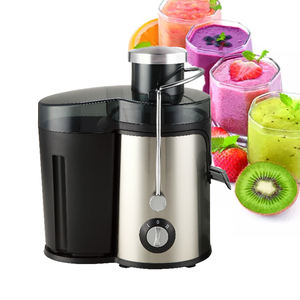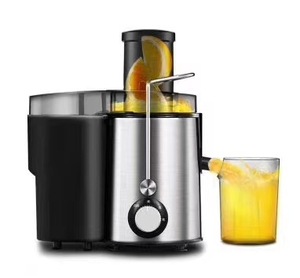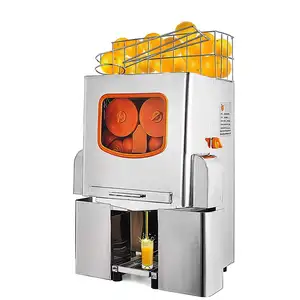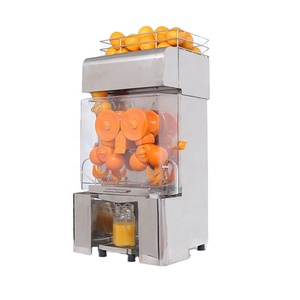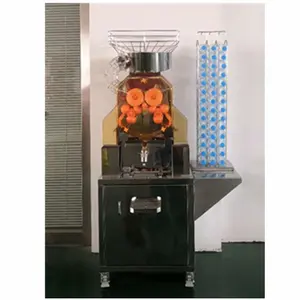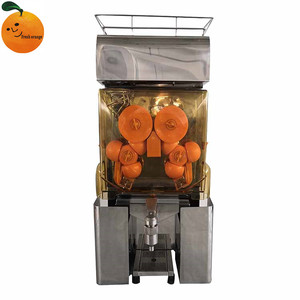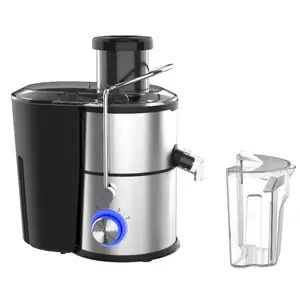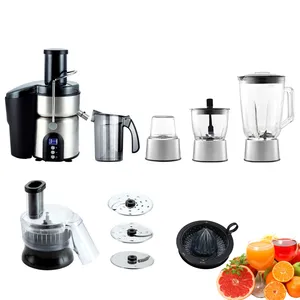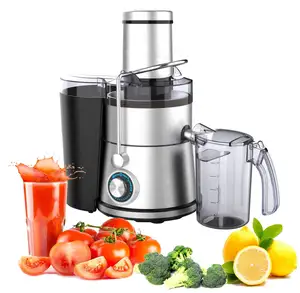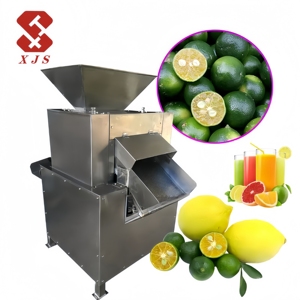Automatic Juice Maker



 Top sponsor listing
Top sponsor listing











 1/13
1/13


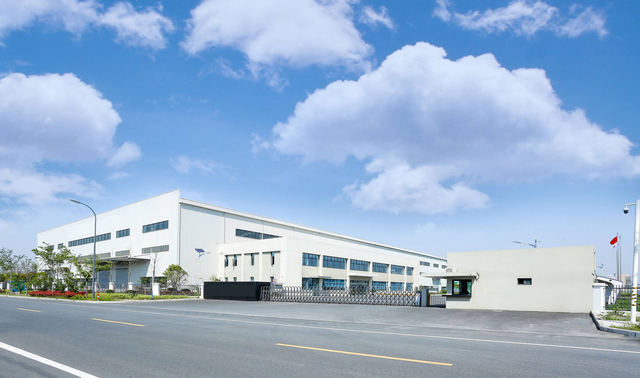









 1/8
1/8











 1/16
1/16




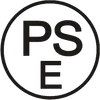

 1/2
1/2













 1/28
1/28



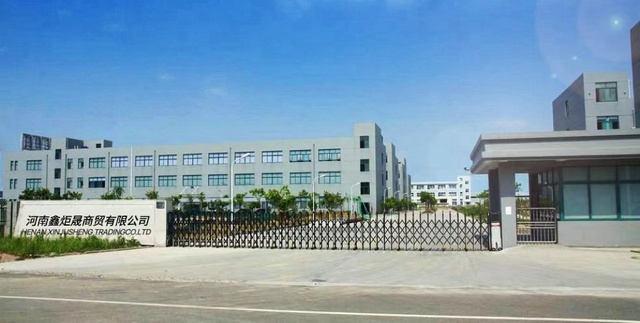
About automatic juice maker
Where to Find Automatic Juice Maker Suppliers?
China leads global production of automatic juice makers, with key manufacturing clusters in Guangdong and Jiangsu provinces. Guangdong’s Pearl River Delta region hosts vertically integrated supply chains for commercial kitchen equipment, enabling rapid prototyping and scalable production. Jiangsu-based manufacturers leverage proximity to Shanghai’s export infrastructure and advanced metal fabrication capabilities, reducing lead times by 10–15% compared to non-specialized regions.
These industrial hubs support end-to-end manufacturing—from stainless steel stamping and CNC machining to final assembly—within compact geographic zones. This integration allows suppliers to maintain tight tolerances on critical components like pressing mechanisms and dispensing nozzles. Buyers benefit from consolidated sourcing ecosystems where motor, pump, and control system vendors operate within 50 km, ensuring faster turnaround (average 25–40 days) and 15–25% lower unit costs than Western alternatives. The concentration also facilitates customization at scale, particularly for vending-integrated models and multi-fruit compatibility systems.
How to Choose Automatic Juice Maker Suppliers?
Procurement decisions should be guided by structured evaluation criteria:
Technical and Quality Compliance
Verify adherence to international safety and performance standards, including CE, RoHS, and ISO 9001. For commercial-grade units, confirm UL or ETL certification if targeting North American markets. Request test reports for electrical components, hydraulic pressure tolerance, and food-contact material compliance (e.g., FDA-approved seals and stainless steel grade 304/316).
Production Capacity Assessment
Evaluate supplier infrastructure based on the following benchmarks:
- Minimum factory area of 3,000m² for sustained volume output
- In-house engineering teams capable of supporting OEM/ODM projects
- Integrated CNC, welding, and surface treatment capabilities
Cross-reference declared capacity with verified on-time delivery rates (target ≥95%) and reorder frequency to assess operational reliability.
Transaction and Risk Mitigation
Utilize secure payment mechanisms such as third-party escrow or Trade Assurance programs. Prioritize suppliers with documented quality control processes—including pre-shipment inspections and batch testing. Conduct sample evaluations focusing on juice yield efficiency, pulp separation, cleaning cycle automation, and noise levels under continuous operation.
What Are the Best Automatic Juice Maker Suppliers?
| Company Name | Main Products | Online Revenue | On-Time Delivery | Reorder Rate | Response Time | Verification Type |
|---|---|---|---|---|---|---|
| Guangdong Yongliang Kitchen Equipment Co., Ltd. | Commercial Bakery Equipment, Drink Dispensers, Fryers | US $10,000+ | 100% | <15% | ≤3h | Custom Manufacturer |
| Changzhou Xunke Commercial Equipment Co., Ltd. | Vending Machines, Juice Extractors, Coffee Equipment | US $420,000+ | 95% | 18% | ≤3h | - |
| Changzhou New Saier Packaging Machinery Co., Ltd. | Vending Machines, Commercial Juice Extractors, Sealing Machines | US $60,000+ | 96% | <15% | ≤2h | - |
| Zhongshan Zhenmei Electrical Appliance Co., Ltd. | Home & Commercial Juice Makers, Motor Components | US $470,000+ | 99% | 19% | ≤2h | Multispecialty Supplier |
| Shenzhen Weiye Mechanical Equipment Co., Ltd. | Food Processing Machinery, Vegetable Cutters, Juice Coolers | US $220,000+ | 98% | <15% | ≤2h | - |
Performance Analysis
Suppliers like Zhongshan Zhenmei dominate high-volume consumer segments with competitive pricing (as low as $11.23/unit MOQ 6) and strong transaction volumes, indicating robust production throughput. Changzhou Xunke and New Saier focus on commercial-grade extractors with higher price points ($280–$1,200), reflecting enhanced durability and integration with vending systems. Guangdong Yongliang stands out with a perfect 100% on-time delivery record, though its lower online revenue suggests specialization in niche or private-label contracts. Shenzhen Weiye offers industrial-scale solutions, including continuous-feed and fruit-vegetable hybrid models priced up to $1,360/set. Fast response times (≤2h) are consistent across Jiangsu and Guangdong suppliers, enhancing communication efficiency for international buyers.
FAQs
What certifications should automatic juice maker suppliers have?
Essential certifications include ISO 9001 for quality management, CE for EU market access, and RoHS for restricted substance compliance. For food safety, verify use of NSF-certified materials in contact zones. North American buyers should require UL or ETL listing for electrical systems.
What is the typical MOQ and lead time?
Standard MOQ ranges from 1 set (commercial models) to 4–8 units (consumer appliances). Lead times average 25–40 days post-deposit, depending on customization level. Stock-ready units may ship within 7–15 days.
Can suppliers customize automatic juice makers?
Yes, most suppliers offer OEM/ODM services including logo branding, voltage adjustment (110V–220V), color variation, and structural modifications. Advanced customization—such as IoT integration, touch panels, or multi-fruit processing—requires validation of in-house R&D capability.
How to assess build quality before ordering?
Request product disassembly videos or factory audit reports highlighting material thickness, motor type (brushed vs. brushless), sealing integrity, and corrosion resistance. Independent lab testing for juice extraction efficiency (≥75% yield) and cycle durability (≥5,000 operations) is recommended for commercial deployments.
What are common packaging and shipping options?
Standard export packaging includes double-layer cardboard with foam inserts and wooden palletization for heavy units. FOB terms are standard; CIF is available upon request. Air freight suits samples (3–7 days); sea freight is optimal for bulk orders (20–35 days).





